House passes defense spending bill with Alabama delegation support
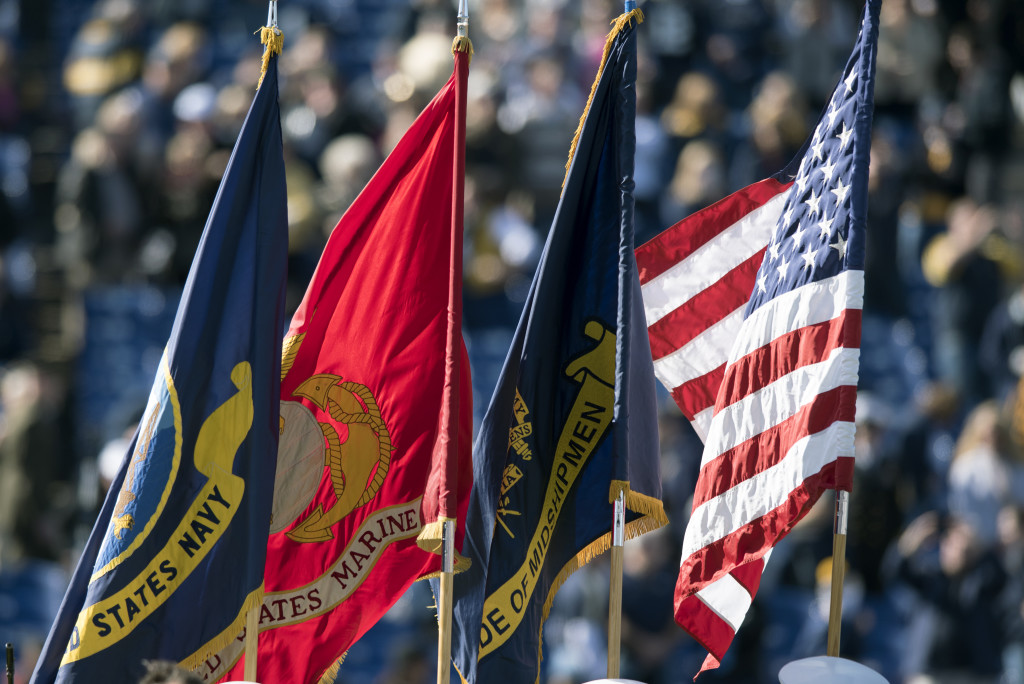
On Friday, the annual defense policy bill overwhelmingly passed the U.S. House of Representatives by a vote of 375 to 34. It now moves to the U.S. Senate for consideration next week. The 2017 National Defense Authorization Act (NDAA), funds the Pentagon and related military and intelligence operations through the next fiscal year. Specifically, the 2017 NDAA: Contains $619 billion total for national defense Provides $5.8 billion in supplemental funding for operations in Iraq, Afghanistan, and Europe Supplies an additional $3.2 billion for Readiness Stabilization Funding in an effort to stop additional reductions of the military Includes critical funding for Army helicopters $882 million for 52 AH-64 Apache helicopters $755 million for 36 new UH-60M multi-use Black Hawks for the Army and National Guard $126 million for the Improved Turbine Engine Program – a program essential to the development of a next generation engine for Blackhawk and Apache helicopter platforms Supports the Littoral Combat Ship program (LCS) by providing $1.1 million for two new Littoral Combat Ship Provides a 2.1% pay raise for our troops Maintains the current Basic Allowance for Housing (BAH), including for dual military families Improves access to health care for our troops and their families Prohibits the transfer of detainees at Guantanamo Bay to the United States, prohibits closure of the facility, and prohibits the transfer of the naval base to Cuba Provides the resources to combat Islamic extremists and to assist foreign security forces, such as the Kurds and Sunnis, to fight ISIS Supports our European allies to counter Russian aggression and funds the Israeli Cooperative Missile Defense programs Delivers improved technology to the warfighter faster While most chamber Democrats backed the legislation, despite the $619 billion price tag coming $3.2 billion dollars over White House requests, Alabama 7th District U.S. Rep. Terri Sewell chose not to vote. Here’s how the delegation voted and what they had to say about the bill: Alabama 1st District U.S. Rep. Bradley Byrne: This NDAA stops the drawdown of the military and authorizes critical funding for the operation and maintenance of our military. The bill authorizes important funding for training, helps rebuild outdated infrastructure, and ensures our military men and women have the munitions they need for ongoing operations. Alabama 2nd District U.S. Rep. Martha Roby: The Fiscal Year 2017 NDAA authorizes funding for the Department of Defense so that our service men and women have the tools and resources necessary to do their jobs. I’m pleased that the House took this critical step to support our troops and keep Americans safe. I look forward to working with the Trump Administration early next year to provide additional resources to fully fund unmet procurement needs, ensuring that our military – from the Generals making strategic decisions at the Pentagon to the warfighter on the front lines – have all that they need to defend our nation. Alabama 3rd District U.S. Rep. Mike Rogers: I am pleased the NDAA passed the House today with my strong support. This is a critical piece of legislation that helps take care of our brave men and women in uniform. This bill will strengthen our military, provide for vital installations like the Anniston Army Depot and authorize the funding needed to keep America safe. It will also give our service members the pay raise they deserve that they have not gotten in the past four years. Alabama 4th District U.S. Rep. Robert Aderholt: No comment made at this time. Alabama 5th District U.S. Rep. Mo Brooks: In recent years, budget cuts have slashed vital funding for training and equipment, creating a readiness crisis. The FY17 NDAA protects programs critical to ensuring our warfighters have the training and weaponry needed to protect America. Specifically, the legislation increases ground and aviation training and replenishes depleted munitions inventories. In addition, the FY17 NDAA fully fund’s Israel’s missile defense requirements and rejects cuts to TRICARE, Housing Allowances, and Commissary benefits for service members and their families. The FY17 NDAA also includes the largest pay raise for our troops in six years. Alabama 6th District U.S. Rep. Gary Palmer: Alabama 7th District U.S. Rep. Terri Sewell:
Memo confirms Pentagon playing politics with military, Bradley Byrne says

An internal Pentagon memo surfaced Tuesday detailing a political strategy for the Secretary of Defense and other defense officials to play “hardball” against House Republicans on the annual defense budget. First reported by POLITICO, the memo details the Pentagon’s plan to play lawmakers against one another in order to defeat the House-passed National Defense Authorization Act (NDAA) — a controversial effort to boost military spending by $18 billion, which could provide the largest troop pay raise in years and reverse an Army drawdown. President Barack Obama has threatened to veto the bill. “In short, we should attack the … gimmick and be prepared to play hardball opposing it,” according to the memo co-written by DOD Comptroller Mike McCord and Stephen Hedger, assistant secretary of defense for legislative affairs. “The veto threat is our primary weapon. However, a veto threat only works if it is supported by the Democratic leadership and their caucuses. Our job is to encourage and support those efforts.” Alabama 1st District U.S. Congressman Bradley Byrne, a member of the House Armed Services Committee, says the memo confirms the Pentagon is playing politics with the U.S. military. “The Obama Administration has a track record of using our military men and women as pawns in their political game, but this memo makes clear they have no shame in doing so,” said Byrne in a news release. “There is no greater responsibility of the Congress than to provide for the common defense, and we cannot allow these kind of petty politics to stand in our way.” The memo, dated May 13, surfaced as House and Senate members returned to Washington for the first time since July after a long summer recess, where military budget negotiations will soon resume. The U.S. House of Representatives passed the NDAA in May on a bipartisan vote of 277 to 147.
Senate passes $602 billion defense authorization bill, defies White House veto threat

Defying a White House veto threat, the U.S. Senate on Tuesday overwhelmingly approved a sweeping $602 billion defense bill. Among its many Pentagon reforms it bars shuttering the prison at Guantanamo Bay, Cuba, includes 1.6 percent pay raise for military troops as well as a historic provision that would mandate young women to register for a potential draft, and denies the Pentagon’s bid to start a new round of military base closings. The National Defense Authorization Act (NDAA) for fiscal year 2017 passed the Senate 85-13, with support from both of Alabama ‘s U.S. senators, Richard Shelby and Jeff Sessions. “From the lack of a comprehensive, coherent, bi-partisan strategy to deal with Islamic terrorists, to the purpose for the detention facility at Guantanamo Bay, to policies about who is eligible for combat, the current Administration continues to make illogical choices for ideological and political reasons that are counter to common sense,” said Sessions, a senior member of the Senate Armed Services Committee, in a news release. “While this bill is not perfect, I supported it because it provides needed resources for our national defense, for our service men and women fighting overseas, and for Alabama’s military assets that are so crucial to our national defense.” Sen. Shelby had a personal victory by ensuring an amendment, which will allow the U.S. Air Force to continue to use the RD-180 rocket engine for critical national security launches until a domestic alternative is available, was included in the final bill. “The inclusion of this amendment in the NDAA is a significant victory for national security and reflects what Congress has heard time and again from every senior official currently serving in the Air Force, Pentagon, and Intelligence Community,” said Shelby in a news release. “The NDAA now safeguards the U.S. Air Force’s authority to maintain competition for the most vital national security and intelligence launches. Not only is this authority critical to ensuring America’s assured access to space, but it is also positive news for American taxpayers.” The amendment safeguards roughly 1,000 jobs in Decatur, Ala., where the rockets are produced by United Launch Alliance – a joint venture of Boeing and Lockheed-Martin. The House passed a version of the NDAA last month, but significant changes by the Senate mean lawmakers must meet to negotiate a final bill. “For this defense bill to become law, the Senate must go to conference with the House of Representatives and get the President’s signature,” Sessions continued. “As our country faces increased threats abroad and at home, I hope this legislation can be improved and made final. I continue to work to make sure Alabama’s contributions to our national defense are properly recognized and protected, and that our men and women overseas have the resources, support and policies in place that will allow them to succeed.”
Mike Rogers: What the NDAA means for East Alabama

As you may have seen, the House of Representatives just passed the National Defense Authorization Act (NDAA) of 2017. It is the 55th consecutive NDAA, legislation that authorizes funding for the Department of Defense and ensures that Congress fulfills its constitutional duty to make sure that our warfighters have the training and equipment that they need. In addition to setting the priorities for our national defense, this legislation also has language that could be important to folks across East Alabama. For example, an amendment was included that would help installations like the Anniston Army Depot in Calhoun County retain a skilled and knowledgeable workforce. The amendment would make it easier for the Depot to hire temporary and term employees for permanent positions as they became available. This authority will allow the Depot to be as agile and nimble as possible in their support of the Army as they confront the ever-changing security threats from ISIS to Russia. Another example of how the legislation could impact East Alabama is by forcing the Secretary of the Army to transfer its surplus vintage firearms to the Civilian Marksmanship Program (CMP). From there the CMP would take these vintage pistols and inspect, grade and prepare them for sale. If this sounds familiar, it’s because last year in the same bill we ask that the Army turn over the pistols. Unfortunately, in what has become an all too common occurrence, the Obama Administration has chosen not to follow directives that Congress passes. With the language included in this year’s House bill, the Army will have no choice but to turn over the pistols to the CMP. The NDAA also included full funding of the missile defense request of our great allies in Israel for co-development and coproduction of Iron Dome, David’s Sling and Arrow 3. This funding is even more important now with Iran developing its missile technology at an alarming rate as a result of the President’s ill-conceived deal. This legislation will help fund our brave men and women in uniform, keep our country safe from harm and will include these common sense solutions. I am pleased to have worked on this important legislation. • • • Mike Rogers is a member of U.S. Congress representing Alabama’s 3rd Congressional District.
Alabama delegation votes for $610B defense bill, despite White House objections

After two days of debate, the U.S. House of Representatives approved a $610 billion defense spending bill by a 277-147 vote late Wednesday night, setting up a summer-long negotiation with their Senate counterparts over necessary military priorities and policy. The bill, H.R. 4909: the National Defense Authorization Act, authorizes spending for military personnel, weapons systems, national security programs, as well as foreign military operations for FY 2017. Additionally, it improves access to quality care for service members, retirees, and their families, while enhancing medical readiness. These reforms make no changes for the current force or retirees. U.S. Rep. Terri Sewell was the sole Alabama House Member to vote against the bill. She joined 147 of her Democratic peers, along with just five Republicans, in voting against the measure. The remainder of the seven-member Alabama delegation — Reps. Bradley Bryne, Martha Roby, Mike Rogers, Robert Aderholt, Mo Brooks and Gary Palmer — voted in support of the bill. Among its many provisions and reforms, the NDAA includes: Military Personnel and Pay: Supports a 2.1 percent pay raise for service members, which is higher than the President’s proposal of 1.6 percent. BRAC: Prohibits another round of base closings. Strengthens Military: Reverses cuts to troop strength; increases investments in training and maintenance programs; and rebuilds crumbling facilities like barracks, hangars, and airfields. Readiness: Makes vital investments in maintenance by including an increase of $597 million for the Navy and Marine Corps, $312 million for the Army, and $430 million more for the Air Force to ensure next-to-deploy units are mission capable. Deterring Russia: Provides funds for more troops and equipment in Europe to deter Russia, as well as additional funds to assist Ukraine. Fighting ISIS: Provides funds to train and equip Syrian fighters and assist Iraqis in retaking Mosul, and adds funds to make sure that Kurdish and Sunni allies can stay in the fight. Commissaries: Reforms the commissary system to preserve the benefit, while also making improvements to ensure continued saving for shoppers, good value for taxpayers, and ongoing support for morale, welfare, and recreational activities. Reforms Uniform Code of Military Justice (UCMJ): Modernizes the Uniform Code of Military Justice to improve the system’s efficiency and transparency, while also enhancing victims’ rights and expands the statute of limitations for child abuse offenses and fraudulent enlistment. Before the vote, the White House issued a veto threat over the bill on Monday due to a number of provisions. A primary White House complaint is that the House bill leaves U.S. war-fighting obligations underfunded, setting the stage for the need of a potential midyear supplemental appropriation. “By gambling with war-fighting funds, the bill risks the safety of our men and women fighting to keep America safe, undercuts stable planning and efficient use of taxpayer dollars, dispirits troops and their families, baffles our allies, and emboldens our enemies,” the White House said in a statement. Meanwhile, House Republicans say the spending plan is critical to ensure the military has the resources it needs, as it wages wars in Afghanistan and against Islamic State militants in Iraq and Syria. Here’s what delegation members are saying about their votes: U.S. Rep. Bradley Byrne (AL-01): It seems like every day a new report comes out about the dire situation our military is in. That’s why it is so important this year’s NDAA makes critical investments in boosting military readiness to ensure we can respond to the wide range of threats facing our country. The bill also makes long-needed reforms to ensure efficiency and accountability at the Pentagon. U.S. Rep. Martha Roby (AL-02): No comment available at this time. U.S. Rep. Mike Rogers (AL-03): This is the 55th consecutive NDAA, legislation that authorizes funding for the Department of Defense and ensures that Congress fulfills its constitutional duty to make sure that our warfighters have the training and equipment that they need. In addition to setting the priorities for our national defense, this legislation also has language that could be important to folks across East Alabama. Rep. Robert Aderholt (AL-04): No comment available at this time. Rep. Mo Brooks (AL-05): In recent years, America’s national security capabilities have been hampered and hollowed out by the unwillingness of Congress and the President to properly fund America’s military. The FY17 NDAA takes a step toward restoring vital funding, modernizing equipment, and providing our warfighters with the personnel and weaponry needed to protect America. In addition, the FY17 NDAA improves accountability by reforming acquisition laws and enhancing cyber security. Rep. Gary Palmer (AL-06): No comment available at this time. Rep. Terri Sewell (AL-07): As a Member of Congress, I am fully committed to ensuring that our brave men and women in uniform have all of the support necessary to protect and defend our great nation from threats both foreign and domestic. My vote on the NDAA in no way undermines that unyielding commitment to preserving our national security, and ensuring our military has the resources that it needs to meet ongoing and emerging threats around the world. However, I am deeply concerned that this bill would set a dangerous precedent by promoting uncertainty for our military at a time when it desperately needs reliable support. … Ultimately, we must put partisan politics aside and pass a defense authorization bill to maintain the safety and security of all Americans. Since President Obama has already indicated his intention to veto this bill, I look forward to working with my colleagues on both sides of the aisle to pass a national defense authorization bill which appropriately funds all necessary government services and military obligations.
Bradley Byrne: Defense bill blocks attempt to cut Mobile shipyard

Southwest Alabama has a proud military tradition. Our area is home to a large number of veterans. The Coast Guard has a strong presence here. Important military vessels are constructed up and down the Gulf Coast. These are all things we take great pride in. That’s why it was so frustrating last December when Secretary of Defense Ash Carter announced his plans to cut the Littoral Combat Ship (LCS) program from 52 total ships to just 40. The LCS is the Navy vessel built at Austal USA in Mobile. Over 4,000 men and women are directly employed by the shipyard. Two different versions of the LCS are currently built by Austal in Mobile and Marinette Marine in Wisconsin. The Secretary also proposed eliminating one of the versions entirely in a “downselect” to a single builder. Navy officials testified before Congress that this would result in one of the shipyards closing entirely. I immediately went to work to make sure his efforts would not be successful. When the President’s budget was released and included the proposed cuts, I doubled down in my efforts. Ultimately, it is the decision of Congress, not a lame-duck President and a lame-duck Secretary of Defense. Let me be clear up front: I don’t support the LCS program simply because it is built in our area. I support the program because the Navy has made clear time and time again they like the LCS, and they need the ship in order to fulfill their mission. If these ships weren’t critical to the Navy, then I wouldn’t have a leg to stand on. So, I set out to stop these proposed cuts. In Congress, I serve on the House Armed Services Committee, which has jurisdiction over our nation’s entire military. Each year, the Committee must pass legislation known as the National Defense Authorization Act (NDAA). This is the bill that sets policy and authorizes funding for military operations and programs. As part of his efforts to cut the program, President Obama’s budget only requested funding for two Littoral Combat Ships this year, instead of the required three ships. My goal was [to] make sure the NDAA included full funding for three ships while also stopping the cuts from moving forward. I’m pleased to report that our efforts were successful, and the NDAA includes funding for three ships. I also introduced an amendment to prevent the Pentagon from following through with their plans to eliminate one of the two builders. My amendment was adopted without any opposition. Ultimately, the NDAA passed the full Armed Services Committee early Thursday morning after more than fifteen hours of debate. In a sign of the truly bipartisan nature of our committee, the bill passed by a vote of 60 to 2. This was a resounding victory for all the men and women who work at the Austal shipyard in Mobile. This means both Republicans and Democrats agree that President Obama is wrong for trying to cut the LCS program, which is so important to the Navy. More challenges may arise, but I promise to keep fighting for the LCS, the Navy, and the people who work at that shipyard. Most importantly, I promise to keep fighting for Southwest Alabama and our proud military traditions. • • • Bradley Byrne is a member of U.S. Congress representing Alabama’s 1st Congressional District.
U.S. House passes defense spending bill, take 2

The U.S. House of Representatives overwhelmingly passed a revised $607 billion National Defense Authorization Act (NDAA) Thursday, after a previous version of the bill had been vetoed by President Barack Obama last month. The new bill passed 370-58 in the House, with the support of the entire Alabama delegation. “Although this bill was not perfect, I was pleased it passed the House with my strong support after President Obama chose to play political games by vetoing the original NDAA,” said Congressman Mike Rogers (AL-03) of the new bill. “It is imperative our military have assurance of funding, and I hope this bill will move quickly through the Senate and President Obama will sign it into law.” The revised bill included $5 billion in spending cuts that were not included in the previous legislation, reflecting a budget agreement between the Obama administration and Congressional GOP leadership. The agreement addressed what the President previously called a Republican “gimmick” — using a wartime account known as Overseas Contingency Operations (OCO) — to fund defense. U.S. Rep. Bradley Byrne (AL-01) took to Facebook to share the news of the bill’s passing, “The House just passed, by a veto-proof majority, the National Defense Authorization Act (NDAA). This is the bill President Obama vetoed a few weeks ago that includes authorization for three additional Littoral Combat Ships, which are built in part by Austal USA in Mobile. I was proud to help make the bill a reality, and I call on the President to stop with the political games and finally sign the bill.” The Senate is expected to vote on, and pass, the revised NDAA as soon as next week.
This week in the U.S. House of Representatives: Nov. 2 – Nov. 6
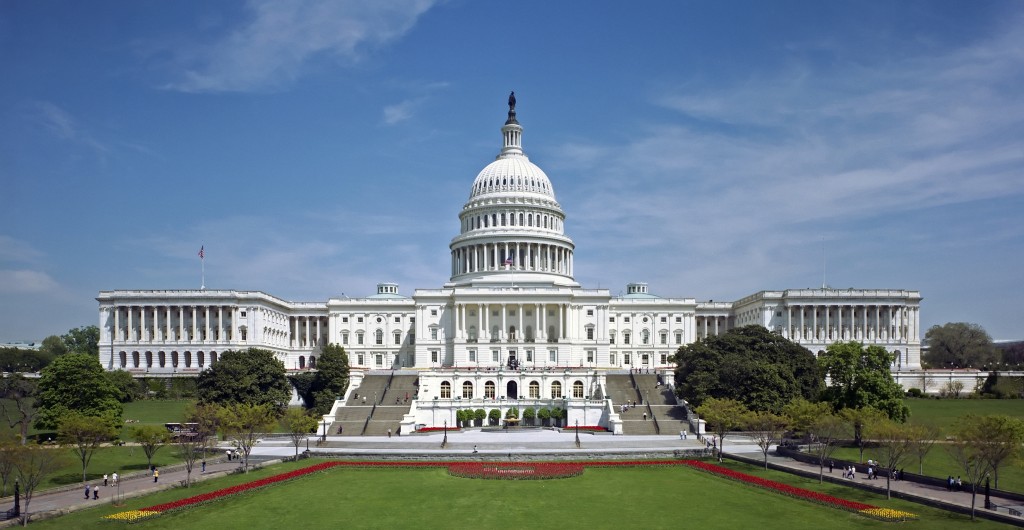
The U.S. House of Representatives has a new speaker — its youngest in 150 years — Rep. Paul Ryan (R-Wis.), and this is his first full week on the job. Up first for the new speaker — tackling a multi-year highway spending bill, then working toward a solution to the vetoed defense spending bill. On Monday, the House is in session and will consider several bills under suspension of the rules. A full list of bills can be found here. On the floor this week: H.R. 22: the DRIVE Act. The House will consider a House amendment to the Senate amendment to the initial bill, which passed the Senate. The amendment would take the Transportation and Infrastructure Committee‘s highway and transit provisions (H.R. 3763) would replace the Senate’s transportation provisions, while the Senate’s financing and offset language and certain other provisions, including an Export-Import Bank reauthorization, would remain. The proposed $325 billion measure would cover projected Highway Trust Fund shortfalls and provide full program funding for six years — but only if Congress can come up with a way to pay for the final three years of spending. Currently federal transportation spending is set to expire on Nov. 20, right before the busy holiday travel season begins. Once it passes the House, negotiators will move toward reconciling differences with their Senate counterparts ahead of the Nov. 20 deadline. The week, the House is also expected to tackle legislation related to the FY 2016 National Defense Authorization Act (NDAA). On Oct. 22, the President Barack Obama vetoed the 2016 NDAA, a sweeping $612 billion defense policy bill, leaving Congress to cobble together a new solution. Several options on how best to proceed are on the table. On Friday, the House of Representatives is not in session. Next week, the House is in recess and will return the following week, Nov. 16., only to recess the week after for the Thanksgiving holiday.
5 things you need to know about Congress this week: 10/9/15
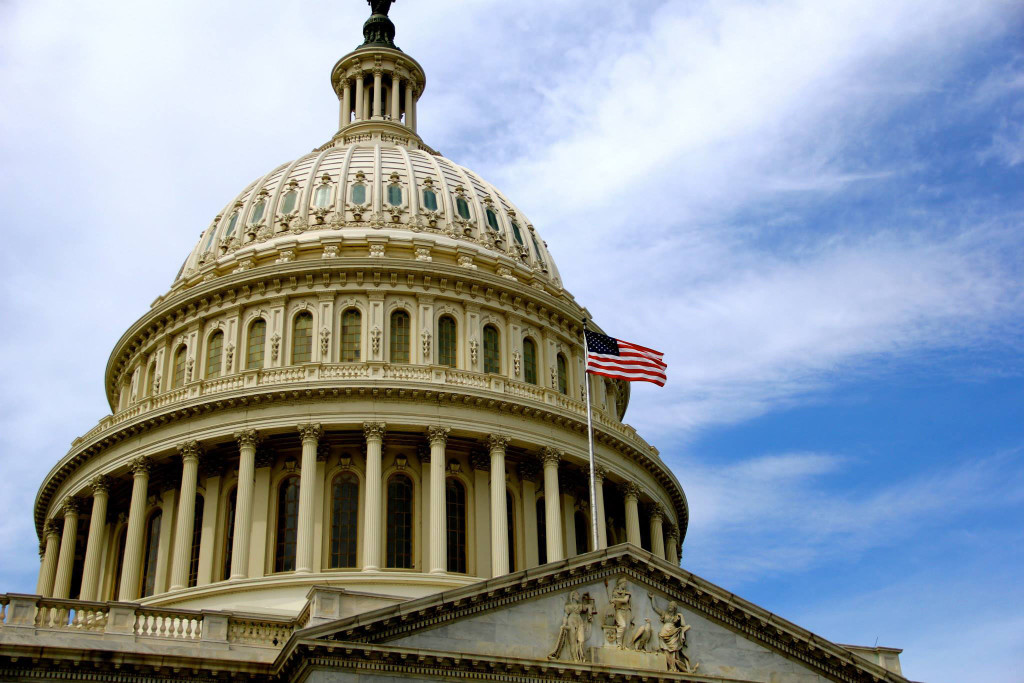
It was another jaw-dropping week on the Hill as Rep. Kevin McCarthy shocked both sides of the aisle in an eleventh hour bailout of the Speaker’s race, leaving questions about who can lead the seemingly fractured House Republican Conference. Here are the five things you need to know that happened in Congress this week: Rep. Kevin McCarthy drops his bed for Speaker In a stunning move, Majority Leader Kevin McCarthy withdrew his candidacy for House speaker Thursday, throwing Congress’ Republican leadership into chaos. Why it matters: Not only does the Speaker of the House wield tremendous power in Congress, but they also have even greater potential power, for n the event of a President’s death, the Vice President assumes office; after that, the Speaker of the House moves to the White House. Beyond the obvious power at stake, McCarthy’s move has left the House in turmoil with no clear choice to fill the key post. GOP lawmakers move bipartisan effort to reauthorize Ex-Im Bank forward While many watched as the U.S. Export-Import Bank was pronounced dead on the floor of Congress on June 30 — when its charter expired — a group of House Republicans have been busy trying to resuscitate the bank ever since. Friday, lawmakers backing the Ex-Im Bank gained enough support through a discharge petition to force a reform and reauthorization bill out of committee and on to the House floor for a vote to renew the agency’s charter. Why it matters: The discharge petition is designed to bypass the floor schedule set by Majority Leader. With the House Republican caucus in disarray, the impending vote only adds to the chaos. Senate Democrats unveil sweeping gun control proposal In the wake of yet another school shooting, Senate Democrats unveiled plans Thursday for gun control reforms that include closing background check loopholes, expanding the background check database, and tightening regulations on illegal gun purchases. Why it matters: If President Barack Obama wants to a leave a legacy, signing comprehensive gun reform in to law would certainly make for a large feather in his cap. As Obama heads to Roseburg today, he will meet with the families of the Umpqua Community College shooting and will re-commit to making said gun laws a priority. Already, he’s strongly considering using his executive power to act where Congress won’t by expanding background checks through executive action. Senate OK’s annual defense bill, sends it to the President Wednesday the Senate voted to approve the $612 billion National Defense Authorization Act (NDAA), 70 to 27. The NDAA authorizes funding for the Department of Defense and among other provisions includes a pay raise for troops, overhauling the military retirement system, which is currently only available to the 17 percent of service members who serve 20 plus years, and reworking the Pentagon’s acquisition system to improve efficiency and avoid cost overruns. Why it matters: President Obama has threatened to veto the bill. Should he do so, it would be only the fifth time that has happened in the past half-century. Panel established to investigate Planned Parenthood The House established a select panel under the Energy and Commerce Committee to investigate and report on all issues related to medical procedures and practices involving fetal tissue donation and procurement; federal funding and support for abortion providers; and late-term abortions, including partial-birth abortions and medical procedures for the care of “born alive” infants who survive abortion procedures. Why it matters: A series of videos released by the Center for Medical Progress, which contain strong evidence that Planned Parenthood and its affiliates broke the law by engaging in illegal sale of fetal body parts, have created public outrage as to how tax-payer dollars are being spent. Findings unearthed by the committee may potentially damage the future of Planned Parenthood, who’s tax-payer funding is already being questioned.
Mike Rogers: What the NDAA means for East Alabama
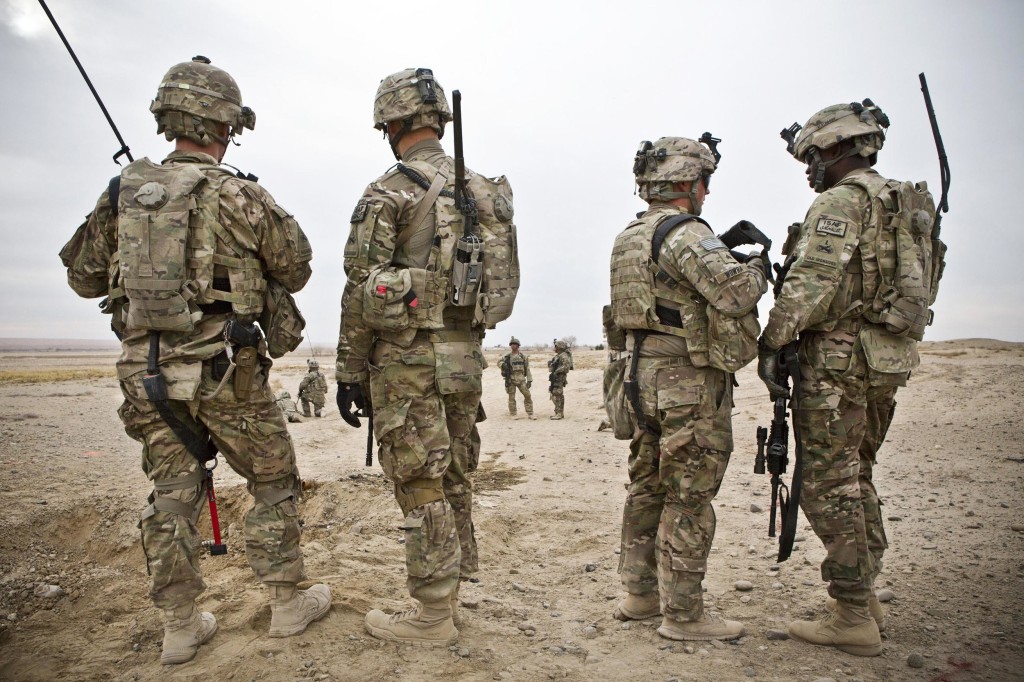
As you may have seen in the news, the Conference Report to accompany H.R. 1735 – National Defense Authorization Act (NDAA) for Fiscal Year 2016 passed the House of Representatives. We can all agree that providing for the common defense is our government’s most important duty. Each year Congress passes the defense bill to make sure that the Pentagon has the resources and flexibility they need to fulfill that mission. I was appointed to serve on the conference committee and worked with a bi-partisan and bi-cameral group of Members to iron out all the details of this crucial piece of legislation. Besides authorizing funding for the Pentagon to fund our military and help keep our nation safe, this bill included language that could directly affect folks across the Third District. One piece of the bill I was thrilled about was language similar to my amendment to allow the Army to transfer its surplus vintage firearms to the Civilian Marksmanship Program (CMP) to sale. Although the final language was not perfect, I am pleased it was included. This means the excess M1911A1 pistols, better known as 1911s, which used to be the standard U.S. Armed Forces sidearm, will be transferred to the CMP for them to inspect, grade and prepare to sell. Currently these excess 1911s are sitting in storage costing the taxpayer roughly $200,000 a year. So in the near future, the public will have the chance to purchase this vintage collectible firearm. The second inclusion that could impact East Alabamians is the language that would prohibit furloughs at Working Capital facilities as long as there was funded workload. Working Capital Fund facilities include the Anniston Army Depot, one of the largest employers in the area, so I am pleased this language will help offer those employees a little more security for the vital work they do for our brave warfighters. Although the NDAA has passed the House of Representatives, at the time of this writing, it still must pass the Senate and then be sent to the President for his signature. President Obama has threatened to veto this bill. I urge him not to play games with our national security and to sign this important bill. Mike Rogers represents Alabama’s 3rd Congressional District. He is in his third term.
Martha Roby: Provide for the common defense
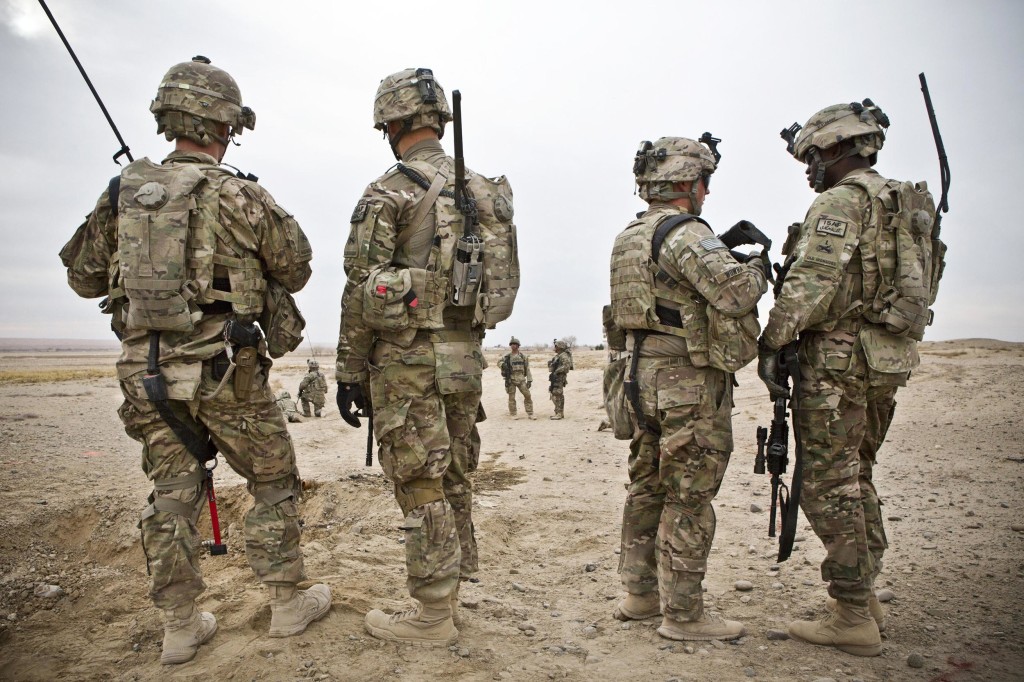
Good news: the House of Representatives passed the 2016 National Defense Authorization Act. The NDAA is the annual bill that authorizes spending and policy for the entire military, including programs and efforts at installations in Alabama. This one wasn’t easy, as ill-advised cuts in recent years have left Congress and military leaders with difficult choices. However, I’m pleased to report that this NDAA does right by our troops and authorizes necessary spending levels for the coming year. Specific to Fort Rucker, this year’s NDAA authorizes: $187 million for the procurement of 28 new Lakota helicopters for the Army Aviation Center of Excellence at Fort Rucker; $47 million for elementary school improvements on post at Fort Rucker. Specific to Maxwell-Gunter Air Force Base, the NDAA authorizes: Critical funding for C-130 aircraft improvements, including $75 million for Avionics Modernization Program (AMP) installation and $33.2 million for C-130 engine upgrades; A $10 million budget increase for the Defense Information Systems Agency (DISA), which has a facility at Gunter; $7.6 million to replace the squadron operations facility at Dannelly Field; $33 million for elementary and middle school renovations at Maxwell Air Force Base; and $75 million in cyber operations procurement for the Commander of United States Cyber Command (CYBERCOM). Maxwell’s Air University recently launched the Air Force Cyber College which is focused on instruction in this emerging front of global warfare. The bill also contains important authorizations for military personnel, including a 1.3 percent pay raise for troops, $281 million in funding to ensure commissaries stay open; and empowering commanders to permit service members to carry firearms at installations, reserve centers, and recruiting centers. Overall the 2016 NDAA authorizes $611.9 billion, which includes both the base Department of Defense budget and funds for Overseas Contingency Operations. This is a great deal of taxpayer money, no question. But, I strongly believe that Congress must fulfill its Constitutional responsibility to “provide for the common defense” of this nation by equipping our Armed Forces with everything they need to fight the enemy and deter threats. In fact, one of my top priorities as your Representative in Congress has been to fight against harmful cuts to our military that erode our readiness capabilities and compromise national security. Unfortunately, President Obama had previously threatened to veto this legislation, and some in the Senate may still try to block it. That will not stop me from fighting to get it passed. Over the last year I have been actively building a bi-partisan coalition of lawmakers to make the case for protecting national defense in the budget. Working together, we will fight to build pressure on the Senate and President Obama to enact this 2016 NDAA into law and then follow it with a defense appropriations bill that fills in this funding authority structure. Martha Roby represents Alabama’s 2nd Congressional District. She is currently serving her third term.
With Alabama delegation support, House passes sweeping defense bill compromise

With the support of all but one member of the Alabama delegation, the U.S. House of Representatives passed a compromise $612 billion annual defense authorization bill Thursday. The National Defense Authorization Act (NDAA) for Fiscal Year 2016 conference report, legislation correcting differences between the House and Senate, passed with a vote of 270 to 156. The NDAA authorizes funding for the Department of Defense and among other provisions includes a pay raise for troops, overhauling the military retirement system, which is currently only available to the 17 percent of service members who serve 20 plus years, and reworking the Pentagon’s acquisition system to improve efficiency and avoid cost overruns. The afternoon vote, largely along party lines, saw just 36 Democrats support the legislation, putting the final tally just 20 votes shy of being able to override a very possible presidential veto. Less than 24 hours before the vote, the White House reiterated President Barack Obama‘s veto threat. The president’s press secretary, Josh Earnest, called the NDAA an “irresponsible way to fund our national defense priorities.” But Alabama congressman, Bradley Bryne disagrees. On the House floor Thursday morning, Byrne delivered a passionate speech regarding the NDAA, “…let’s just take a quick look at what all is going on in the world today. From Syria to Iraq to the Pacific to Iran to Russia, the list goes on and on. Look at the wide range of threats facing our nation. And for our President – our Commander-in-Chief – to threaten to veto this bipartisan bill is simply reprehensible.” Among other supporters from Alabama delegation was Rep. Mike Rogers. “We worked long and hard on this crucial piece of legislation,” said Rogers, a conferee who helped reconcile the House and Senate bills. “I am proud it passed the House with my strong support and am pleased our military is funded to help keep our nation safe.” As a conferee, Rogers worked to ensure language similar to an amendment he introduced in the House — to allow the Army to transfer its surplus vintage firearms, the excess M1911A1 pistols, to the Civilian Marksmanship Program (CMP) to sale — was included in the Conference Report. Another key provision for the Yellowhammer state was the inclusion of language that would prohibit furloughs at Working Capital Fund facilities — such as the Anniston Army Depot, which is one of the largest employers in East Alabama — as long as there was funded workload. “I am very pleased with the CMP amendment and the inclusion of the language to take care of the Depot. I hope the Senate will quickly pass this legislation so it can go to President Obama to be signed into law,” Rogers continued. Reps. Bradley Byrne (AL-01), Martha Roby (AL-02), Mike Rogers (AL-03), Robert Aderholt (AL-04), Mo Brooks (AL-05), Gary Palmer (AL-06) voted in for the bill. Rep. Terri Sewell (AL-07) voted against it.


